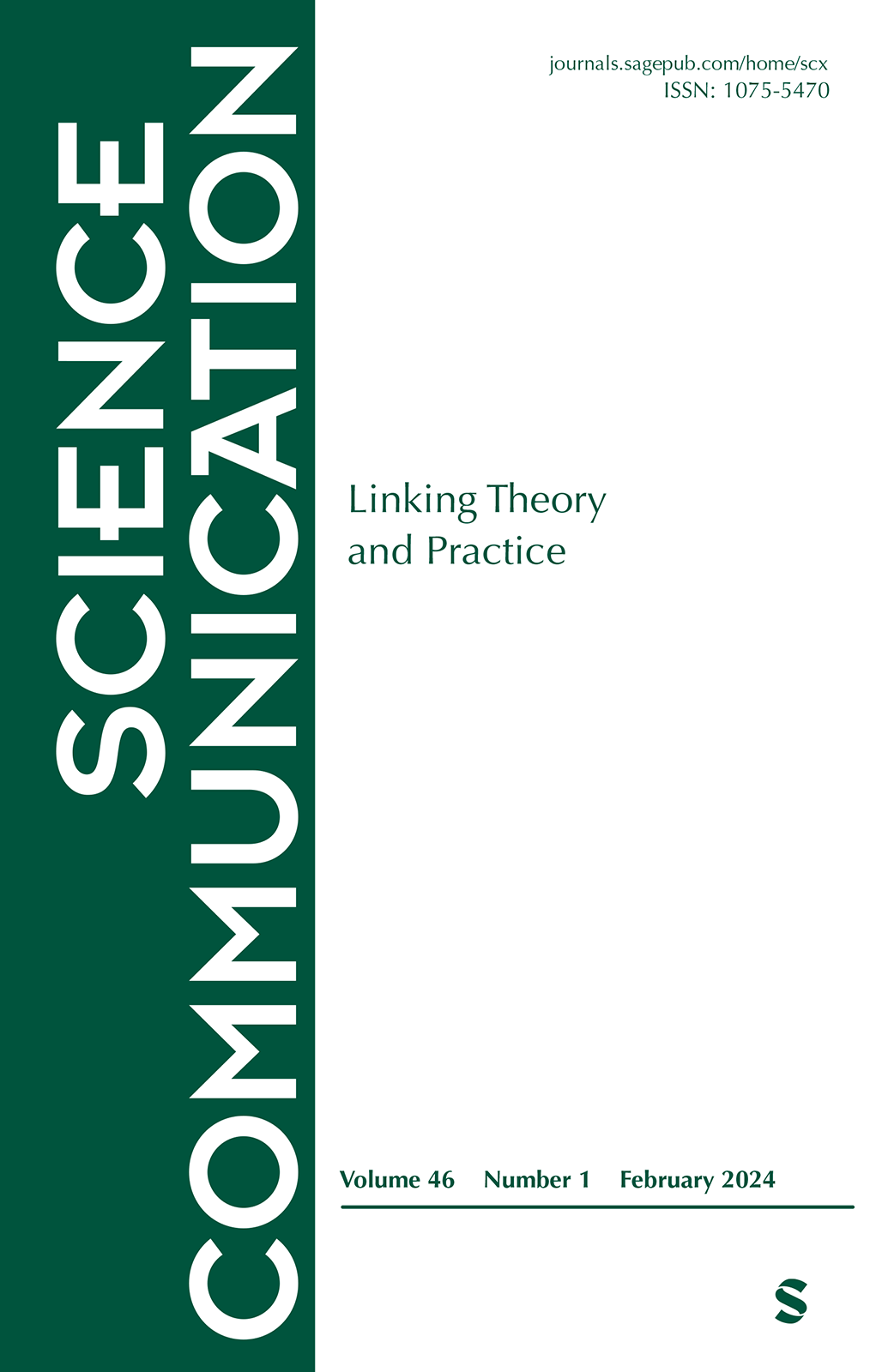接触COVID-19错误信息后的验证:预测因素、结果和验证的中介作用
IF 4.1
1区 文学
Q1 COMMUNICATION
引用次数: 5
摘要
这项研究提出了一个以理论为导向的模型,该模型检验了人们对新冠肺炎错误信息的验证的预测因素和结果。通过对400名美国成年人进行的在线实验,这项研究表明,那些认为他人可能受到错误信息的影响,并且这种影响对他人以及恐惧和焦虑程度较高的人有严重后果的人,更有可能通过搜索引擎、知名医疗网站或事实核查网站进行机构验证。进行机构验证的意图增加了个人对纠正错误信息的有效性信念,这促使他们纠正社交媒体上的错误信息。本文章由计算机程序翻译,如有差异,请以英文原文为准。
Verification Upon Exposure to COVID-19 Misinformation: Predictors, Outcomes, and the Mediating Role of Verification
This study proposes a theory-oriented model that examines the predictors and outcomes of people’s verification of COVID-19 misinformation. Using an online experiment with 400 U.S. adults, this study showed that those who believed that others might be influenced by misinformation and that such influence had serious consequences for others as well as those with a higher level of fear and anxiety were more likely to perform institutional verification by using search engines, prestigious medical sites, or fact-checking sites. The intention to conduct institutional verification increased individuals’ efficacy beliefs regarding correcting misinformation, which motivated them to correct misinformation on social media.
求助全文
通过发布文献求助,成功后即可免费获取论文全文。
去求助
来源期刊

Science Communication
COMMUNICATION-
CiteScore
13.50
自引率
4.40%
发文量
19
期刊介绍:
Science Communication is a prestigious journal that focuses on communication research. It is recognized globally for publishing top-quality manuscripts that demonstrate excellent theoretical frameworks and robust methodology. Our journal embraces a broad definition of science, encompassing not only the natural and physical sciences but also social science, technology, environment, engineering, and health. Regardless of the scientific area, effective communication is always the focal point of our investigations.
Apart from theoretical and methodological rigor, we place great emphasis on the practical implications of scientific communication. Therefore, we expect all submitted manuscripts to address the real-world applications and significance of their research, alongside theoretical considerations.
In summary, Science Communication is an internationally renowned journal dedicated to bridging the gap between science and society. By promoting effective communication in various scientific domains, we strive to engage readers with intriguing research that has tangible implications for the world around us.
 求助内容:
求助内容: 应助结果提醒方式:
应助结果提醒方式:


